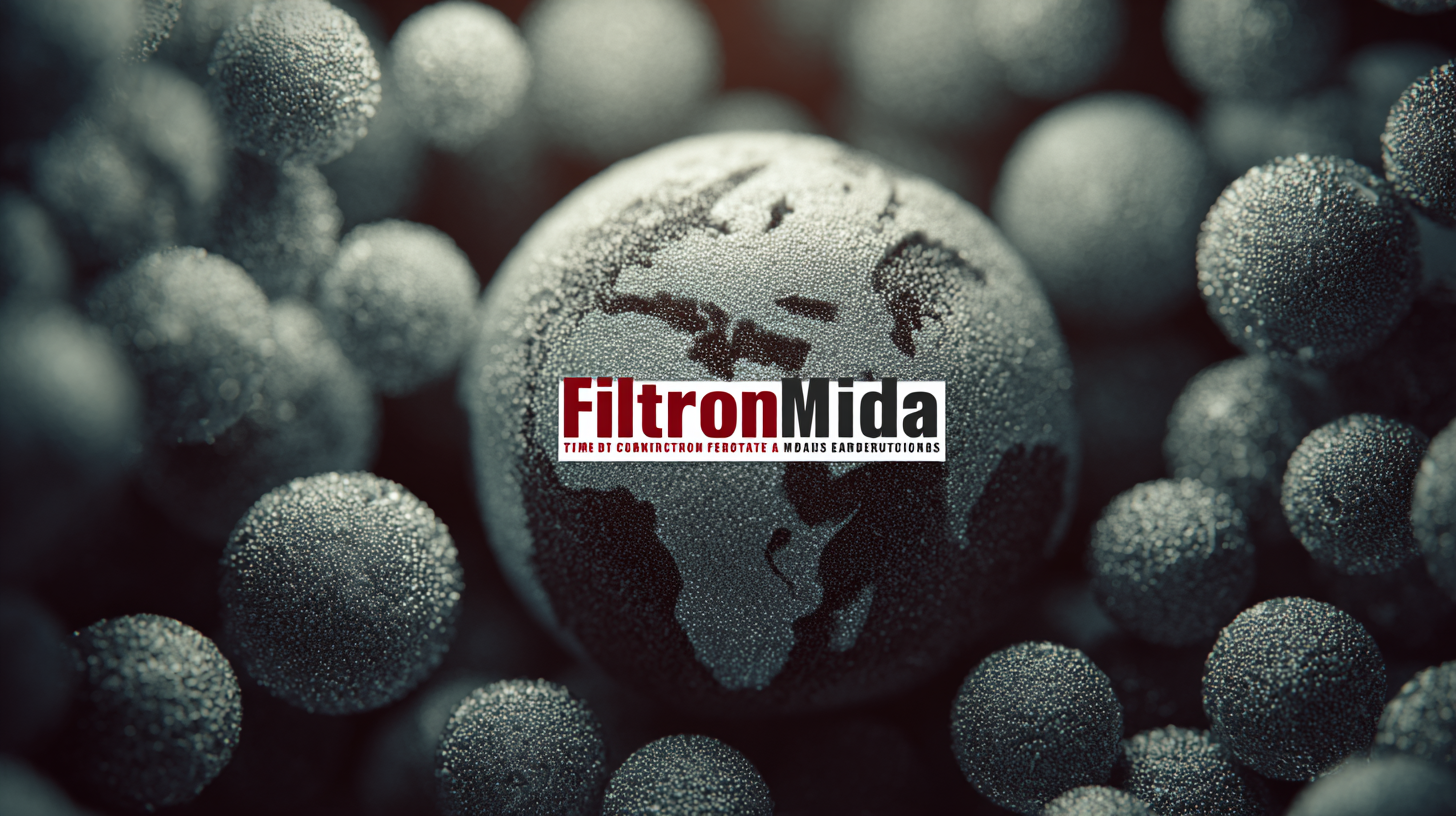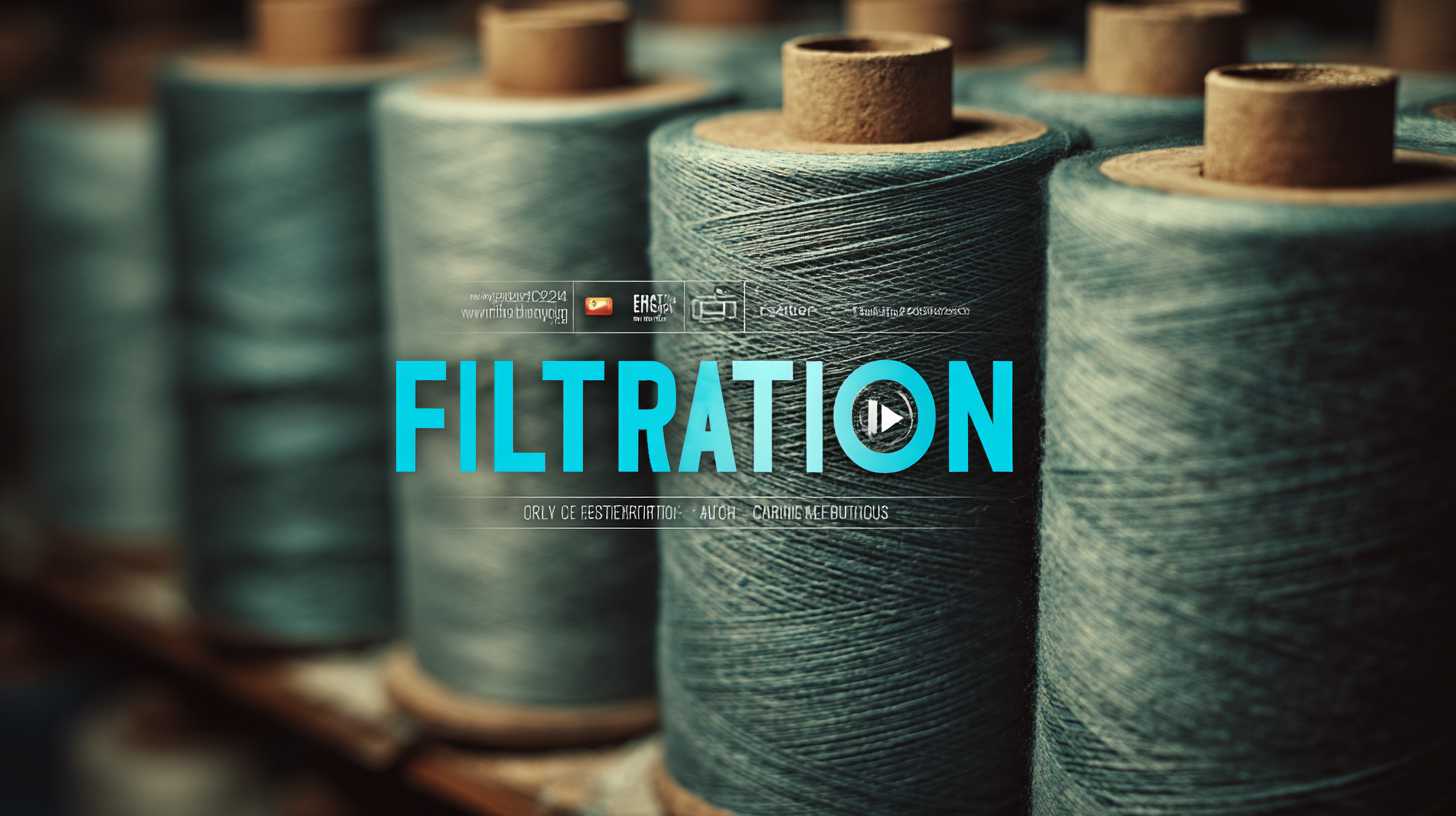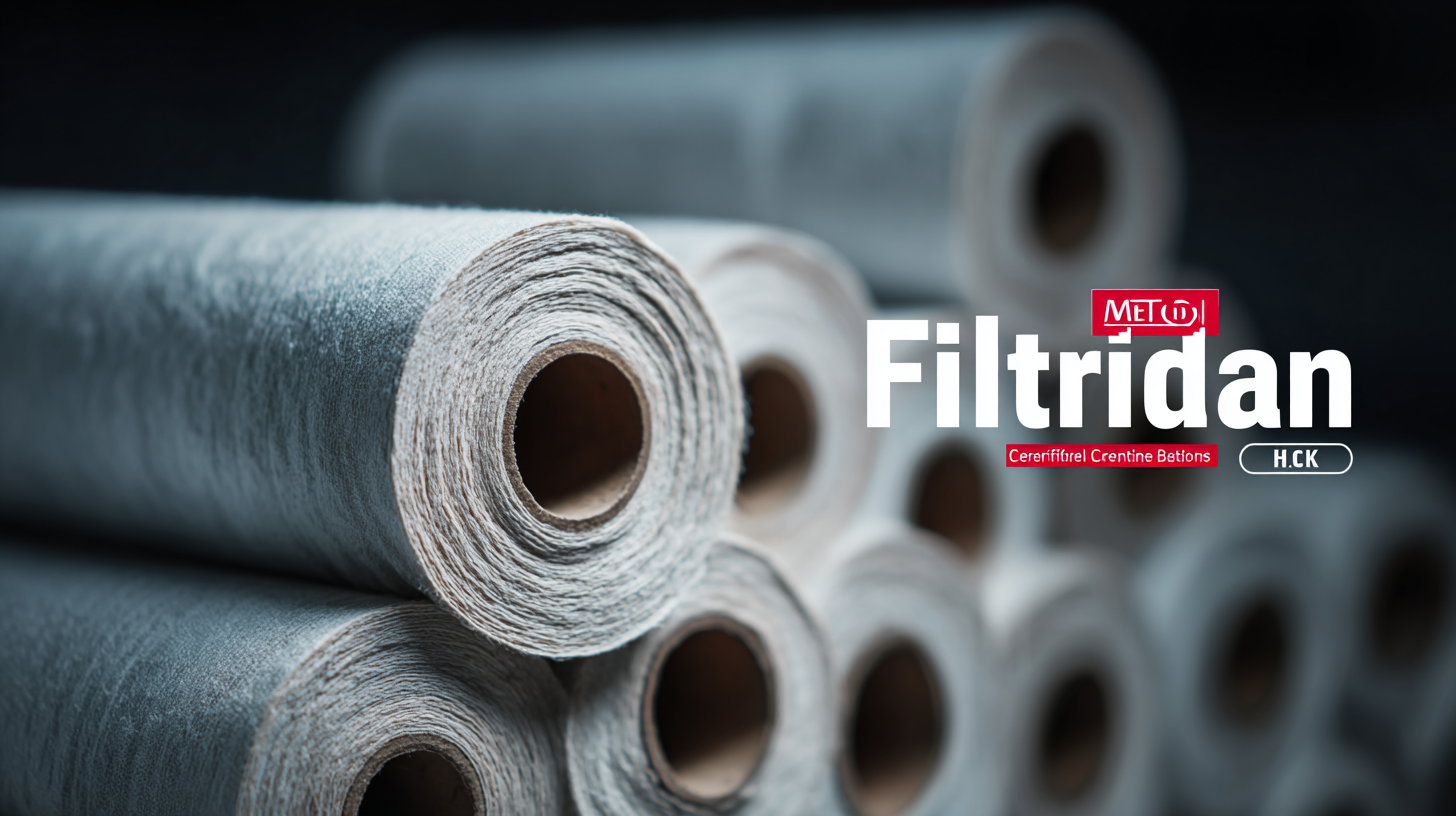Leave Your Message
Request a Quote
In today's interconnected global marketplace, sourcing the best filtration media is crucial for businesses aiming to improve efficiency and maintain high-quality standards. This blog will guide you through the complexities of global trade certifications that are essential for selecting filtration media tailored to your specific needs. As industries across the globe increasingly prioritize sustainability and performance, understanding the certifications that govern filtration media can provide a competitive edge.

From environmental compliance to safety standards, navigating these certifications is key to ensuring that your sourcing decisions not only meet regulatory demands but also enhance the overall effectiveness of your operations.
Join us as we explore various certification types, important considerations in the selection process, and how to make informed choices for sourcing superior filtration media for your business.
When sourcing filtration media for your business, understanding global trade certifications is crucial. These certifications not only ensure that the products meet international standards but also facilitate smoother trade processes across borders. Filtration media, used in various industries such as water treatment and air purification, must adhere to stringent criteria to qualify for certification. By familiarizing yourself with the necessary regulations and certification bodies, you can make informed decisions that align with your business needs and sustainability goals.
Recently, Singapore has set out eligibility criteria for international carbon credits (ICCs) under its carbon tax regime, which highlights the growing importance of sustainability in global trade. Companies that are liable for carbon taxes will be able to use ICCs to offset a portion of their taxable emissions starting January 1, 2024. As businesses aim to adhere to such environmental regulations, sourcing filtration media that complies with global trade certifications can play a significant role in mitigating their carbon footprint. Understanding these certifications not only showcases your commitment to sustainability but also enhances your market competitiveness in an increasingly eco-conscious landscape.
Product quality plays a pivotal role in determining the success of global trade initiatives, especially when it comes to sourcing filtration media. High-quality filtration products not only meet regulatory standards but also enhance the reputation of a brand in a competitive marketplace. Businesses that prioritize quality are more likely to establish trust with their customers, leading to repeat purchases and positive word-of-mouth. Additionally, high-quality filtration media can significantly reduce operational costs, as they tend to be more efficient and durable, allowing firms to optimize their supply chains and improve bottom-line results.
As global businesses navigate the complexities of trade certifications and varying standards across regions, selecting the right filtration media becomes a strategic decision. It is essential to thoroughly assess suppliers and their certifications, ensuring that the products meet both local and international quality standards. By investing in superior filtration media, companies not only fulfill compliance requirements but also position themselves for long-term success in the global market. The careful selection of filtration media ultimately reflects a commitment to quality that resonates with consumers and can lead to increased market share.

In evaluating Chinese manufacturers for filtration media sourcing, businesses must focus on key quality factors that align with the evolving landscape of service-oriented manufacturing. With China's recent advancements in industrial innovation and its commitment to enhancing product development and service innovation, companies can leverage these improvements to source high-quality filtration media. By understanding the models and mechanisms that facilitate this evolution, decision-makers can identify manufacturers that not only produce reliable products but also show a readiness to innovate in service delivery.
Additionally, the emphasis on sustainability in China's manufacturing sector is crucial when selecting partners. The implementation of carbon emissions trading policies illustrates a significant shift towards greener production practices. Companies should consider how potential suppliers are responding to these trends, particularly in water resource management and the overall environmental impact of their operations. Aligning with manufacturers that prioritize eco-friendly practices ensures not only product quality but also compliance with global sustainability standards, fostering long-term partnerships that benefit both parties in the context of Industry 4.0.
Ensuring compliance with international standards is crucial for businesses sourcing filtration media, as it not only affects product quality but also impacts market access. The first step in this process is to familiarize yourself with the specific regulations governing filtration media in your target markets. Different countries may have varying standards, such as ISO certifications or industry-specific requirements. Conducting thorough research and consulting with industry experts can provide valuable insights and help businesses align their sourcing practices with these regulations.

Another vital strategy is to establish strong relationships with suppliers who are well-versed in compliance issues. Partnering with manufacturers that have a proven track record of adhering to international standards can mitigate risks and enhance the reliability of the filtration media you source. Regular audits and quality checks are also essential; performing these can ensure that products not only meet compliance requirements but also maintain high performance and durability. By implementing these strategies, businesses can navigate the complexities of global trade and secure the best filtration media.
When sourcing high-quality filtration media globally, businesses must prioritize a comprehensive understanding of material specifications and performance standards. According to a report by the Filtration Society, the global filtration market is anticipated to reach $50 billion by 2027, driven by increasing environmental regulations and a surge in industrial applications. Therefore, sourcing filtration media that meets these rigorous standards is essential for operational integrity and product reliability.
Tips: When evaluating suppliers, consider those who provide third-party certifications and compliance with international standards such as ISO 9001 and ISO 14001. These certifications indicate that the supplier has rigorous quality control processes in place, ensuring consistent product performance. Moreover, opting for suppliers with a global presence can offer insights into regional compliance requirements and innovation in filtration technologies.
In addition to compliance, businesses should conduct a thorough analysis of the filtration media’s application compatibility. The Society of Automotive Engineers highlights that up to 30% of filtration media failures stem from improper media selection based on application-specific requirements. Engaging in comprehensive testing and validation processes can mitigate risks and enhance the effectiveness of filtration solutions.
Tips: Collaborate with trusted industry experts or consultants who can guide your selection process, ensuring you choose the best filtration media tailored to your specific business needs.

